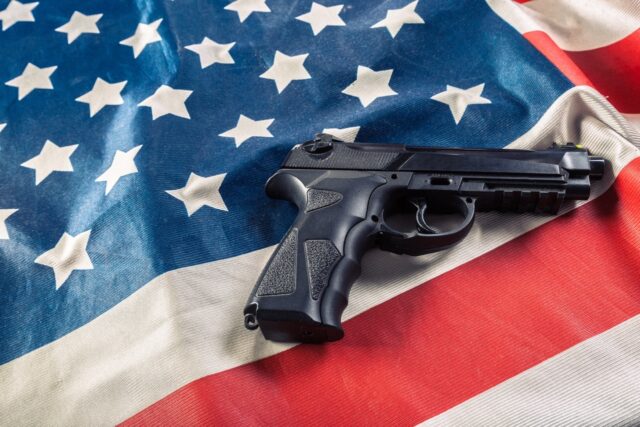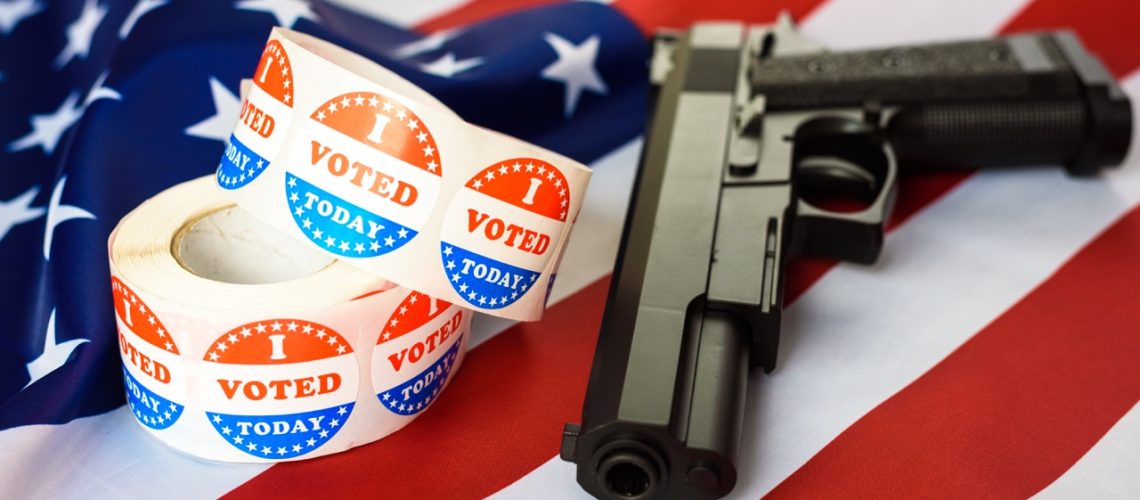Understanding Arizona’s firearm transfer regulations and restoration is essential for individuals seeking to navigate the state’s legal landscape of gun ownership.
Arizona has specific laws and procedures governing the restoration of firearm rights for individuals prohibited from possessing firearms. Arizona’s firearm restoration and transfer regulations are governed by state law, specifically A.R.S. (Arizona Revised Statutes) § 13-3101. Additionally, the transfer of firearms within the state is subject to certain regulations.
This article goes through key aspects of restoring Firearms and transfer regulations. Understanding these requirements is crucial for individuals seeking to regain their gun ownership rights responsibly and lawfully.
Firearm Transfer Regulations in Arizona
Under Arizona law, individuals previously convicted of a felony lose their right to possess firearms. However, Arizona provides a process for restoring firearm rights for certain individuals.
If a person has completed their sentence, including probation or parole, they may be eligible to have their firearm rights restored.
The process involves filing a petition with the court, and the court will then consider factors such as the nature of the offense, the individual’s behavior since the conviction, and any other relevant circumstances.
Felony Convictions and Firearm Restrictions:
Felony convictions typically result in the loss of firearm rights. Individuals with felony convictions in Arizona are prohibited from possessing firearms unless their rights are restored legally.
Understanding the specific restrictions and the steps is important before applying for the restoration of firearm rights.
Expungement and Firearm Rights Restoration:
Expungement allows individuals to legally state that they have not been convicted of a felony, which can be beneficial during the restoration of the firearm rights process. In Arizona, expungement is known as “setting aside a judgment.”
In Arizona, anyone convicted of a crime can put through a petition to set the conviction aside or expunged. However, the convicted person must complete their sentence or any required probation.
It’s important to note that an order setting aside the judgment of conviction under A.R.S. § 13-907 does not remove the conviction from the public record.

Rights Restoration Applications:
The restoration of firearm rights in Arizona often involves filing a rights restoration application with the court.
The application typically includes detailed information about the individual’s criminal history, rehabilitation efforts, and reasons for seeking rights restoration.
The court will review the application and may schedule a hearing to determine eligibility and assess the individual’s suitability for firearm ownership.
Eligibility and Requirements for Firearm Rights Restoration:
The qualifying criteria typically consider the type and severity of the offense that led to the loss of rights, the individual’s criminal history, and the completion of any required sentences or probationary periods.
Each case is assessed individually, and specific eligibility requirements may vary based on the circumstances. In Arizona, felony offenses are classified into different categories based on severity.
Serious Felonies:
Serious felonies, also known as “dangerous crimes,” encompass offenses that are considered more severe and carry significant penalties. These offenses typically involve acts of violence, physical harm, or the use of a deadly weapon.
Examples of serious felonies in Arizona may include murder, manslaughter, aggravated assault, armed robbery, sexual offenses, and drug-related offenses. Convictions for serious felonies often result in longer prison sentences and stricter penalties.
Non-Serious Felonies:
Non-serious felonies, sometimes called “non-dangerous crimes,” generally involve offenses considered less severe than serious felonies. These offenses may be non-violent or involve lesser degrees of harm.
Non-serious felonies in Arizona include drug possession offenses, theft crimes, forgery, fraud, or property-related offenses.
The penalties for non-serious felonies are typically less severe than those for serious felonies, although they can still carry significant consequences such as imprisonment and fines.
Eligibility:
People sentenced to non-serious felonies can apply for restoration of possessing and using firearms rights two years after the case ends.
If your first-time felony conviction was outside Arizona or in Federal Court, proper restoration is not automatic, and an Application to Restore Rights is still required.
You can find more information on how to restore your rights and how to apply for the restoration of firearm rights on the Arizona Judicial Branch website.
Entities Involved in the Restoration Process:
Arizona Courts:
The courts play a crucial role in the restoration process. They receive and review rights restoration applications, evaluate eligibility, and make decisions regarding restoring firearm rights.
Legal Experts:
Consulting with experienced attorneys specializing in firearms law or rights restoration can provide valuable insights and assistance. They can guide the legal requirements, help prepare the necessary documentation, and represent individuals in court proceedings.
Rights Restoration Organizations:
Various organizations and advocacy groups focus on assisting individuals with restoring firearm rights. They provide resources, support, and expertise to navigate the process effectively.
Guide for Firearm Rights Restoration
Here is a step-by-step guide to the process of restoring firearm rights in Arizona:
Filing a petition:
The first step is filing a petition for a “set-aside” or restoring firearms rights with an Arizona court. A “petition” is a written filing with an Arizona court asking the court to decide and issue an order restoring firearm rights.
Evaluation by mental health professionals (if applicable):
Suppose an individual has been diagnosed with a mental illness or committed to a mental institution. In that case, they may be required to undergo an evaluation by mental health professionals to assess their fitness to possess firearms.
The American Psychiatric Association (A.P.A.) acknowledges the importance of adequate clinical assessment in restoring an individual’s right to purchase or possess firearms after a disqualification related to a mental disorder.
The A.P.A. suggests that psychiatric evaluations and testimony should be involved when individuals seek restoration of their firearm rights.
This approach ensures a thorough examination of an individual’s mental health status and helps inform the decision-making process regarding the restoration of firearm rights.
Waiting period:
People convicted of non-serious offenses in Arizona apply to restore their rights to possess and use firearms two years after the case ends.
People convicted of a serious offense wait ten years after the case ends. And people convicted of dangerous offenses are ineligible for a firearms rights restoration.
Necessary documentation:
The individual must fill out an application and provide the necessary documentation, such as a copy of the conviction and proof of completion of probation.
Restoring firearm rights in Arizona requires a clear understanding of the qualifying criteria, waiting periods, application process, and necessary documentation.
Individuals can responsibly pursue restoring their gun ownership rights by meeting the eligibility requirements, adhering to waiting periods, completing the application accurately, and providing the required documentation.
Seeking the guidance of legal experts like The Sorenson Law Firm that specialize in rights restoration can greatly enhance the chances of a successful restoration process.








